Keputusan Presiden 39/2014: Analisis Dampaknya Terhadap Sektor Ekonomi
Keputusan Presiden 39/2014: Analisis Dampaknya Terhadap Sektor Ekonomi
Keputusan Presiden Republik Indonesia Nomor 39 Tahun 2014 (Kepres 39/2014) ditetapkan pada tanggal 6 Agustus 2014 dan bertujuan untuk mempercepat pengembangan ekonomi nasional melalui penyederhanaan proses administrasi dan penciptaan iklim investasi yang lebih kondusif. Dalam kerangka ini, Keputusan Presiden ini mendorong pengembangan proyek-proyek infrastruktur, yang diharapkan bisa memberikan dorongan positif bagi pertumbuhan sektor ekonomi secara keseluruhan.
Latar Belakang Keputusan Presiden 39/2014
Dalam konteks pembangunan ekonomi, Indonesia menghadapi berbagai tantangan, antara lain infrastruktur yang belum memadai dan ketidakpastian regulasi. Keputusan Presiden 39/2014 hadir sebagai respons terhadap hal tersebut, menawarkan solusi melalui penyederhanaan prosedur investasi dan penguatan koordinasi antar-instansi pemerintah. Kebijakan ini diharapkan dapat menyokong pertumbuhan sektor ekonomi, khususnya dalam bidang infrastruktur, energi, dan industri.
Dampak Terhadap Sektor Infrastruktur
Sektor infrastruktur merupakan salah satu bidang yang paling mendapat perhatian dalam Kepres 39/2014. Dengan adanya kebijakan ini, diharapkan akan terjadi percepatan dalam pembangunan proyek-proyek infrastruktur strategis, seperti jalan tol, pelabuhan, dan bandara. Penyederhanaan proses perizinan menjadi kunci untuk menghindari hambatan administratif yang sering memperlambat pelaksanaan proyek.
Salah satu dampak signifikan dari kebijakan ini adalah meningkatnya minat investasi dari dalam dan luar negeri. Proyek infrastruktur besar sering dikaitkan dengan pengembalian investasi jangka panjang yang menguntungkan, sehingga menarik lebih banyak investor. Selain itu, keberhasilan proyek infrastruktur dapat menciptakan lapangan kerja baru, yang berpengaruh positif pada penyerapan tenaga kerja di daerah.
Peningkatan Sektor Energi
Sektor energi juga memanfaatkan efek positif dari Kepres 39/2014. Pembiayaan proyek energi terbarukan, seperti energi surya dan angin, semakin terintegrasi ke dalam rencana pembangunan ekonomi. Kebijakan ini mendorong investasi pada energi bersih, yang penting untuk keberlanjutan lingkungan dan pengurangan emisi karbon.
Dengan adanya pendekatan terkoordinasi untuk mempercepat proyek-proyek energi, Indonesia memiliki potensi untuk meningkatkan pasokan energi, mengurangi ketergantungan pada bahan bakar fosil, dan berkontribusi terhadap pengurangan perubahan iklim global. Kenaikan pasokan energi ini juga dapat mendukung pertumbuhan sektor industri yang bergantung pada ketersediaan energi yang stabil.
Implikasi bagi Sektor Industri
Pembukaan akses terhadap investasi dan percepatan perizinan juga membawa dampak signifikan bagi sektor industri. Dengan meningkatnya infrastruktur yang layak, industri dapat beroperasi dengan lebih efisien, mengurangi biaya logistik, dan meningkatkan daya saing produk dalam pasar lokal dan internasional. Sektor manufaktur, misalnya, dapat merasakan dampak langsung dari kebijakan ini melalui pengurangan waktu dan biaya yang sebelumnya dibebankan oleh kendala administratif.
Kepres 39/2014 juga memberikan peluang bagi UKM (Usaha Kecil dan Menengah) untuk beradaptasi dan tumbuh dalam ekosistem baru yang lebih mendukung. Dengan terbukanya peluang pasar yang lebih luas, UKM diharapkan dapat berkontribusi lebih besar terhadap PDB nasional.
Tantangan dalam Implementasi
Walaupun ada banyak potensi positif dari Kepres 39/2014, tantangan dalam implementasinya tidak bisa diabaikan. Ketidaksesuaian antara kebijakan pusat dan pelaksanaan di tingkat daerah seringkali mengakibatkan hambatan. Misalnya, ketidakpahaman atau resistensi dari otoritas lokal terhadap kebijakan pusat dapat menghambat laju proyek.
Selain itu, adanya korupsi dan praktik kolusi dalam pengadaan proyek infrastruktur bisa mempengaruhi efektivitas dari kebijakan ini. Oleh karena itu, diperlukan pengawasan yang ketat dan transparansi dalam proses tender untuk memastikan bahwa proyek dapat dijalankan sesuai dengan rencana dan tidak menyimpang dari prinsip-prinsip good governance.
Analisis Sosial dan Lingkungan
Salah satu aspek penting dari Keputusan Presiden 39/2014 adalah implikasi sosial dan lingkungan. Proyek-proyek infrastruktur dan energi seringkali memerlukan lahan yang luas, yang dapat menimbulkan konflik dengan masyarakat lokal, terutama yang berkaitan dengan pemukiman mereka. Oleh karena itu, penting bagi pemerintah untuk melakukan analisis dampak sosial dan lingkungan (Amdal) yang komprehensif sebelum melanjutkan proyek.
Strategi mitigasi seperti penyusunan rencana resettlement untuk masyarakat yang terdampak juga harus menjadi prioritas. Dalam konteks ini, melibatkan masyarakat dalam proses pengambilan keputusan sangat penting untuk menciptakan rasa kepemilikan dan meminimalkan potensi konflik.
Sinergi antar Sektor
Keputusan Presiden 39/2014 juga memberikan peluang untuk menciptakan sinergi antar berbagai sektor ekonomi. Dengan adanya pengembangan infrastruktur yang baik, sektor pertanian, pariwisata, dan perdagangan juga dapat tumbuh dengan pesat. Sebagai contoh, peningkatan aksesibilitas ke daerah pedesaan melalui jalan dan jembatan baru dapat membantu petani mendapatkan pasar yang lebih luas, sehingga meningkatkan pendapatan mereka.
Selain itu, sektor pariwisata juga akan diuntungkan, terutama dengan pengembangan infrastruktur transportasi yang lebih baik. Destinasi wisata yang sebelumnya sulit dijangkau kini menjadi lebih mudah diakses, meningkatkan jumlah kunjungan wisatawan domestik dan internasional.
Kesimpulan
Kepres 39/2014 merupakan langkah strategis pemerintah Indonesia untuk merangsang pertumbuhan ekonomi melalui pengembangan infrastruktur dan peningkatan iklim investasi. Meskipun menghadapi berbagai tantangan dalam implementasi, dampak positif yang dapat dihasilkan, terutama dalam sektor infrastruktur, energi, dan industri, menunjukkan arah yang menjanjikan bagi perekonomian nasional.
Dengan pendekatan yang holistik dan kolaboratif, diharapkan dampak dari kebijakan ini dapat dirasakan secara luas, tidak hanya oleh para investor, tetapi juga oleh masyarakat dan lingkungan pada umumnya. Pengawasan dan evaluasi yang ketat serta partisipasi publik dalam proses pengambilan keputusan akan menjadi kunci untuk memastikan keberhasilan kebijakan ini dalam mencapai tujuan pembangunan yang berkelanjutan.


